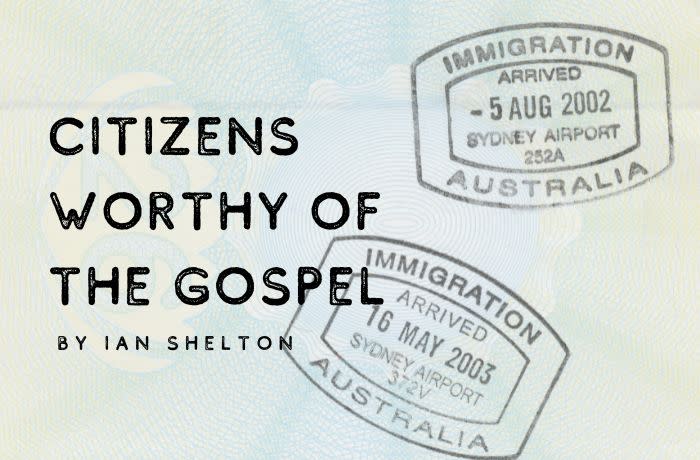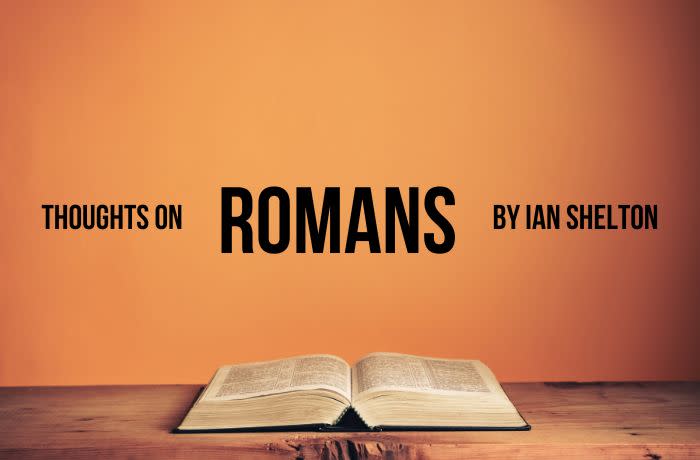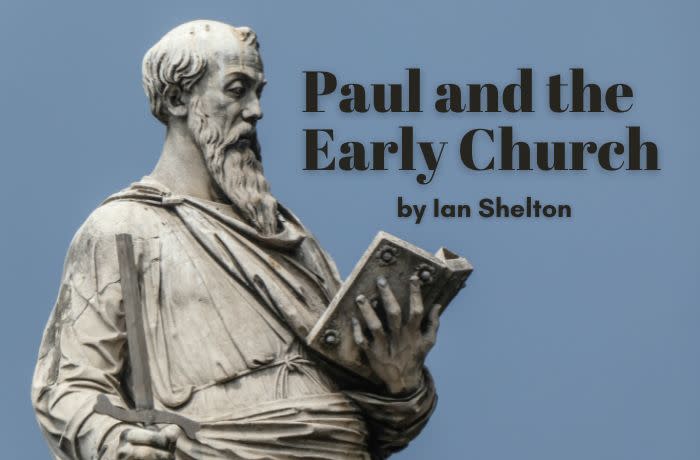Download our vision book
Genesis 18 reveals yet another upgrade of the heavenly vision, and once again, right after the couple have cynically laughed a faithless laugh followed by a lie. Though this couple had amazing encounters and promises with and from God, still they failed and struggled in their faith. (Gen. 17:1-18:15)
This is really a story of God’s grace in choosing a flawed couple, persisting with them through their struggles and failures to finally release the promised blessing to them.
I trust we can identify and be encouraged by Abraham and Sarah in the struggles of our own faith journey.
But first a brief summary of the Abraham story so far.
He had been called out of an evil, oppressive, Babylonian city with an amazing vision of a heavenly city that had been built by God. (Heb 11:10) He spent his life on a faith pilgrimage with this city vision in mind.
God lovingly and patiently revealed the makeup of this city as Abraham journeyed with Him.
The first big city “download” for Abraham came in Genesis chapter 14 when he encountered a mysterious king, Melchizedek, and his city called Salem. Could this have been Jesus drawing back the curtains of what a manifestation of the heavenly city would look like on earth?
A city that would be an amazing community of shalom! Not a place of warfare but of human flourishing.
Now here in Genesis chapter 18 comes the second “download” of how earthly cities should look when modelled on the heavenly city.
“For I have chosen him, so that he may command his children and his household after him to keep the way of the LORD by doing righteousness and justice, so that the LORD may bring upon Abraham what He has spoken about him.” (Gen 28:19. NASB)
Abraham was to instruct all that followed him in the way of the Lord , “by doing righteousness and justice.” (Gen 18:19. NASB)
In other words the way of the Lord is fulfilled by doing righteousness and justice. The fulfilment of the Abrahamic vision depended on this obedience.
These words (righteousness and justice) are repeated many times in the Old Testament and applied powerfully by Jesus and the first church in the cities of the Roman Empire.
In short, righteous people are doers of justice in their respective communities.
Justice is a central action in the delivery of the good news of the gospel of the Kingdom of God in any city, as will be seen as God’s redemptive plan for cities unfolds through scripture.
Immediately following Abraham and Sarah’s latest “failure”, God’s grace again comes to them by giving them a fresh download followed by an object lesson that they would never forget. This object lesson has reverberated down through history to this day.
The object lesson?
God hears and feels the pain of the oppressed and comes to deliver and judge. The twin cities of Sodom and Gomorrah come into focus as oppressive communities.
Now read carefully Genesis 18:16-33.
Abraham’s attention was drawn to Sodom. Then God said he would not hide but reveal to Abraham what He was about to do. (Gen. 18:16-17)
The reason being that God was going to cause Abraham to become a mighty nation to bless the nations of the earth. (Gen. 18:18)
This is still the mandate of the church.
Then God explains that blessing nations would come as Abraham taught his children and all under his influence to do righteousness and justice. God makes clear that this teaching was the condition for Abraham to be blessed into the future. (Gen. 18:19)
“Doing righteousness and justice” was God’s way to be a blessing to the nations.
This was not just idle theory but an imperative that God’s people were to be “doing.” And the context was in view of checking out two cities that lay before Abraham, Sodom and Gomorrah.
First of all, why was “doing righteousness and justice” so important?
Tim Keller’s book, Generous Justice, is a “must read” to gain a simple and yet profound explanation of why this phase was vital then, and still is today if the gospel is going to impact cities and communities.
Keller explains that being righteous refers to a “life of right relationships,” beginning with being “right with God and therefore committed to putting right all other relationships in life.” (Page 10)
Keller goes on to say that the righteous “are willing to disadvantage themselves to advantage the community; the wicked are willing to disadvantage the community to advantage themselves.” (Page 90)
Keller explains that justice “means punishing wrong doers and caring for the victims of unjust treatment.” He says that if all people were righteous then justice would be “unnecessary, because everyone would be living in right relationship to everyone else.” (Page 10-11)
Therefore the idea of righteousness and justice is about everyday living and affects all relationships and how life is to be conducted “with fairness, generosity and equity.” (Page 10)
This is not about a list of moral rules, but about relationships, first with God and then humanity generally, providing a foundation for a shalom filled flourishing community. When the church models this righteousness and justice it will overflow to impact the wider community.
So righteousness and justice is profoundly social!
Keller says that righteousness and justice are linked over three dozen times in The Bible. He goes on to say that the best English expression that conveys their meaning together is “social justice.” (Page 14)
“The Lord loves social justice; the earth is full of his unfailing love.” (Ps 33:5)
Keller cites Job 29:12-17 and 31:13-28 as great examples of righteousness and justice reflecting social justice in Job’s life.
The instructions that God was giving Abraham was about building flourishing communities based on righteousness and justice. Abraham was learning more of the real meaning of the vision for the heavenly city built by God. (Heb 11:10) Now Abraham was to model this righteous and just city as he built community on earth.
Abraham and Sarah were learning how to be city builders.
Back to Sodom and Gomorrah. All of the above instructions to Abraham were in the context of God’s intention to judge these two cities. Abraham was about to learn a sober lesson on how important justice was to God.
There was no justice in these cities, only oppression. They oppressed the people they ruled over in the surrounding cities. As a result the oppressed cried out in their pain. God heard their cry of pain and determined to act against the oppressors.
“And the LORD said, “The outcry of Sodom and Gomorrah is indeed great, and their sin is exceedingly grave.” (Gen 18:20. NASB)
Christopher Wright in his book, The Mission of God, explains that this outcry was the cry of pain like a scream for help by a woman being raped; (Page 359) a very powerful image.
“Yahweh explained to Abraham, ‘The outcry for justice against Sodom and Gomorrah is so great and their sin so blatant’” (Gen. 18:20 TPT)
This cry for help was a cry for justice as the Passion Translation points out. In the days of city states the king and/or judges of the city would sit in the gates where people would come with their grievances. The king’s role was to punish the oppressor and to assist the oppressed. However in wicked cities the king and judges did not give justice in the gates and the people suffered.
God expects kings and judges to ensure that justice is done in their cities. He will call to account unjust rulers.
God exposes injustice by the rulers in Amos 5:12c, because they “turn aside the needy in the gate.” God then calls rulers to, “Hate evil, and love good, and establish justice in the gate;” (Amos 5:15a)
Richard Boyce in his book, The Cry to God in the Old Testament, makes the comment, “As a king’s rule may be judged by his treatment of the marginal, so may a city by its mistreatment of the same.” (Page 51)
A question? Are the needy being given justice in the modern city?
Ezekiel 16 explains the sins of Sodom. “‘Now this was the sin of your sister Sodom: She and her daughters were arrogant, overfed and unconcerned; they did not help the poor and needy.“ (Ezekiel 16:49 NIV)
Again in the words of Christopher Wright in The Mission of God, “They were overproud, overfed and under-concerned, a very modern sounding list of accusations.” (Page 360)
But the inference here in Ezekiel is that God was actually judging Jerusalem by linking His model city to the sins of Sodom. (Ezekiel 16:2)
In other words the issue of how a city cared for the poor and oppressed defined its status before God. Now read Ezekiel 18 and especially from verse five onward to see how practising justice and righteousness is God’s way.
However the lessons that God had for Abraham were not complete.
Abraham learned how to be a city intercessor.
He became concerned that by judging these cities God would sweep away the righteous with the wicked. (Gen. 18:23)
Abraham interceded with God to spare the city if fifty righteous people could be found. In the end it seems that he could not find ten righteous in the city. (Gen. 18:22-33)
From the above scriptures it is evident that the definition of a righteous person is one who ensures justice in the city by assisting the downtrodden and calling the oppressors to account. Added to this definition the righteous are those who, like God, “hear the cry of pain” arising from those being oppressed.
Does the modern church “hear the pain” of the city as God does?
Abraham and Sarah were in the midst of a sobering lesson from God. They were instructed in what to be “doing” and why this was important.
God followed through with his intentions. But he did deliver Abraham’s nephew from Sodom before the judgement fell. Abraham’s intercession at least saved Lot.
“So when God destroyed the cities of the plain, he remembered Abraham, and he brought Lot out of the catastrophe that overthrew the cities where Lot had lived.” (Gen. 19:29 NIV)
Peter, in his epistle has something to add on this subject. “God decreed destruction for the cities of Sodom and Gomorrah. A mound of ashes was all that was left—grim warning to anyone bent on an ungodly life. But that good man Lot, driven nearly out of his mind by the sexual filth and perversity, was rescued. Surrounded by moral rot day after day after day, that righteous man was in constant torment.” (2 Peter 2:6-8 MSG)
Living in the “blessings of Abraham” is discovered by keeping the way of the Lord and by doing righteousness and justice. Of course this is realised only in Christ as will be shown in future chapters.
Ian Shelton is Coordinator of Movement Australia



